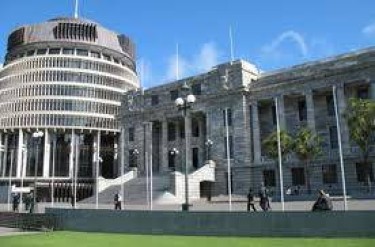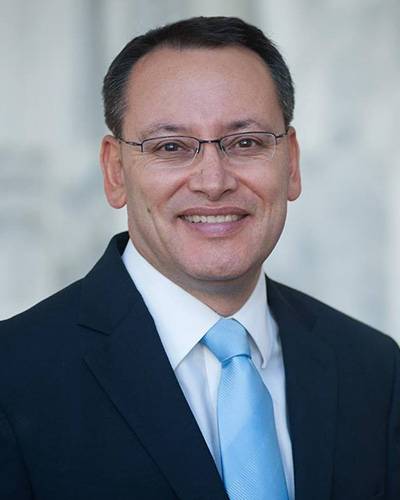

Abuse inquiry, waka jumping, health spending and trumping Trump
ANALYSIS: Victims of abuse in State and faith-based care were praised for their strength, bravery and honesty.
WATCH: NBR political editor Brent Edwards speaks with Grant Walker.


ANALYSIS: Victims of abuse in State and faith-based care were praised for their strength, bravery and honesty.
WATCH: NBR political editor Brent Edwards speaks with Grant Walker.
It has taken six years to complete but finally the Royal Commission of Inquiry into Abuse in Care has been tabled in Parliament.
For many of the victims of abuse, which go back decades, the wait has been even longer.
The final report is 3000 pages long and comprises 16 volumes, with the stories of more than 2400 survivors at the heart of it.
Prime Minister Christopher Luxon thanked survivors for their strength, bravery and honesty.
“I know there is nothing I can do to take away your pain, but I want you to know you are heard and you are believed,” Luxon said.
He described it as a “dark and sorrowful” day in New Zealand’s history and said New Zealand should have done better.
The report investigated the abuse of children, young people and adults in State and faith-based care from 1950 to 1999.
As a first step Luxon will make a formal apology on November 12, but one of the big issues will be what compensation victims will get for the abuse they suffered. The cost will run into the hundreds of millions, possibly billions.

The report was tabled in Parliament this week.
Luxon would not be drawn on the numbers but told reporters on Wednesday it was about the Government doing the right thing.
In the case of Lake Alice patients, the Government apologised to 95 of them in 2001 and so far, has settled 202 claims averaging about $70,000 each.
But this week the Government has not simply acknowledged that patients at Lake Alice were abused but also accepts now that they were tortured. It is now considering options for redress for those who were tortured.
This week’s announcement also raised questions about whether State institutions were safe today for children and young people, with Luxon being questioned on the push to introduce boot camps for troubled youth. He also faced questions over the Government’s hardline on gangs, given gangs like the Mongrel Mob were formed by those who had suffered abuse in State institutions.
In his address to Parliament the Prime Minister said a terrible injustice was done in the name of State care.
“It is now the responsibility of the State to make redress and this Government will ensure it happens. And as Prime Minister, I will ensure the State carries its care and protection responsibilities with great weight,” Luxon said.

Prime Minister Christopher Luxon.
This week too, former Green Party MP Darleen Tana returned to Parliament and made it clear she had no intention of resigning as an MP after being asked to do so by her former party.
The Greens will now discuss the matter at their party annual general meeting over the weekend to see whether party members back the option of using the waka jumping legislation to eject Tana from Parliament. The Greens had opposed the idea of the legislation initially, although voted for it in 2018 as part of their confidence and supply agreement with Labour.
The Electoral (Integrity) Amendment Bill was designed to prevent MPs ditching their parties during a parliamentary term and was a condition of Labour’s coalition agreement with New Zealand First.

Green Party co-leader Chlöe Swarbrick.
When the legislation passed in 2018 then Greens co-leader James Shaw said it had not been easy for the party but provisions in the bill had got the Green Party to the point where it was willing to let it pass.
Now Green Party members will decide whether it has got to the point that they are willing to use it to ditch one of their own former MPs.
Beehive Banter presenter Grant Walker predicts they will, and if that is the case presumably the Greens will start the process next week. That will require either Greens co-leader Chlöe Swarbrick or Marama Davidson, or both, to give Tana 21 days’ notice of their intention to write to Parliamentary Speaker Gerry Brownlee saying that Tana has acted in a way that distorts or is likely to distort the proportionality of Parliament.
On that timeline – if the Greens use the option – Tana’s parliamentary career should end sometime in August.
Tana is not the only one being asked to move on. Earlier in the week the Government sacked the board of Health New Zealand – although most had already resigned – and appointed chair Professor Lester Levy as commissioner.

Health Minister Dr Shane Reti.
Its action came after Health Minister Dr Shane Reti said it was told the organisation – which came about after the amalgamation of the country’s 20 district health boards – was overspending by $130 million a week and faced a $1.4 billion deficit for the current financial year.
But it recorded a $1b deficit last year and that followed on from years of deficits from the DHBs. For example, in 2019-20 DHBs’ collective deficit exceeded $1b.
But Reti pointed to a report from the Office of the Auditor-General which said Health NZ did not have a performance framework that tied together its activities with how the health system performed.
“As a result, there is no clear performance story. Given the amount of funding and importance of health services for New Zealand, that is problematic,” the OAG said.
Finally, United States Vice-President Kamala Harris has become the front runner in the US presidential election after President Joe Biden finally announced he was withdrawing following a series of problematic public appearances led many Democrats to conclude he could not beat his Republican rival, Donald Trump.
Early polling has bumped support for Harris and her campaign appears to be raking in the dough.
Walker observes that Trump appears to be panicking, no longer having the cakewalk to victory he might have expected had Biden remained the Democratic nominee.
The bounce in support Trump might have gotten from the failed assassination attempt appears to have dissipated and he now faces off against a much younger candidate, which begins to make his age – and not just his character and integrity – an issue in the election campaign.
But the Trump campaign is expected to outspend Harris’ campaign 25-to-1 over the next month and has already started attacking her strongly, including saying she was complicit in covering up Biden’s “obvious mental decline”.
Despite some sign of politicians moderating their language immediately after the attempted assassination of Trump, it now appears to be politics as usual in the United States.
Brent Edwards is NBR’s political editor.